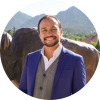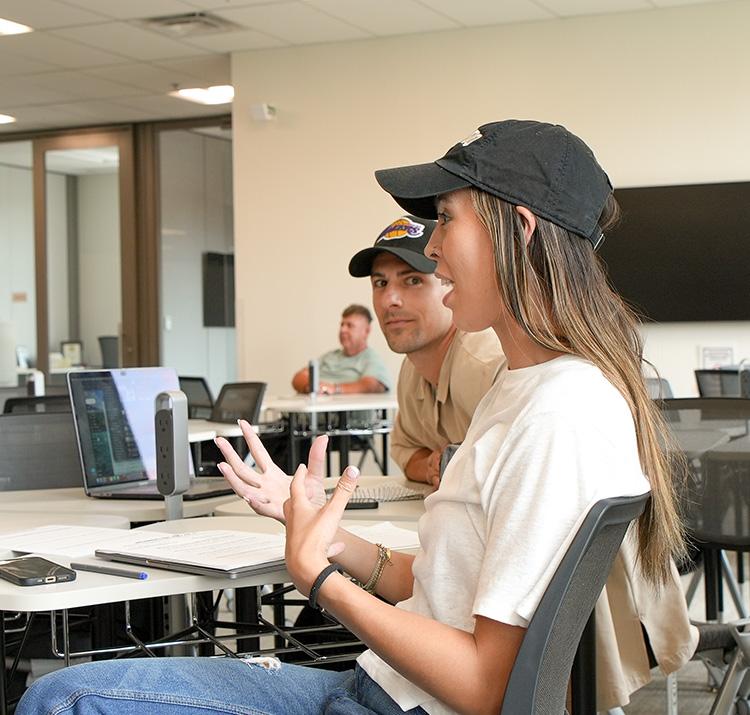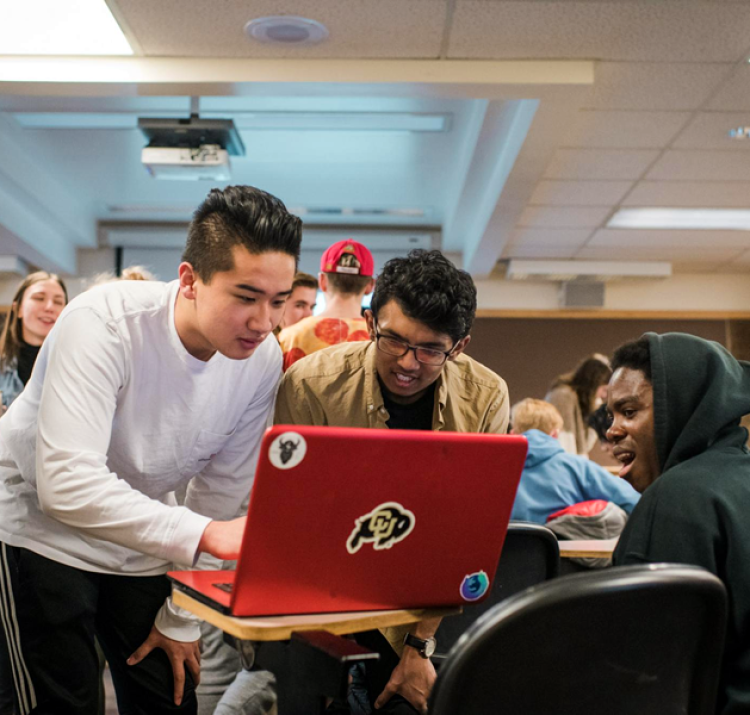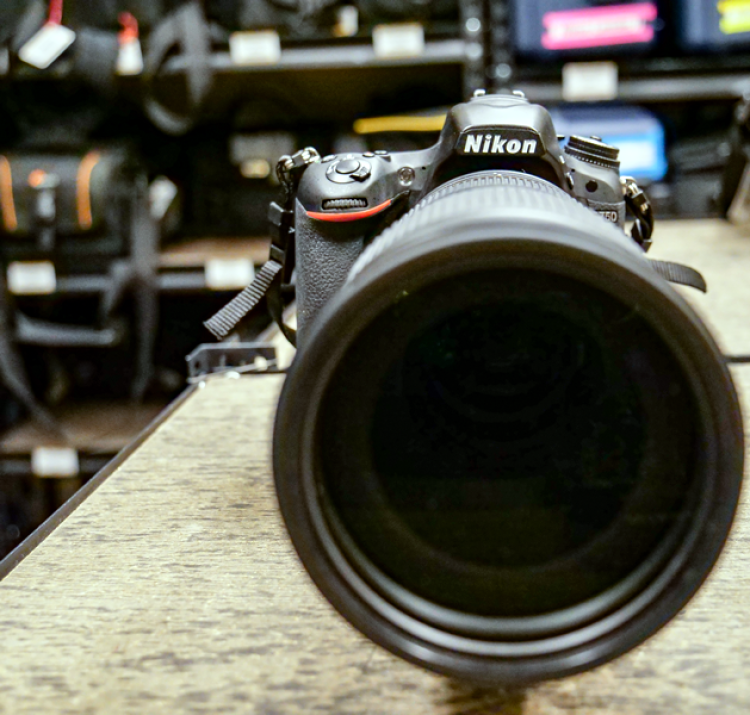Graduate Students
Hello, current CMDI graduate students. You'll find answers to frequently asked questions, courses for the upcoming semester, helpful contacts and more below. Don't hesitate to reach out to CMDI Graduate Program Manager if you need assistance. We're here to help!
Are you looking for information on classes? Use CU Boulder's Class Search to search by program, view available courses and register.

Jorge Garza
CMDI Graduate Program Manager
cmdigrad@colorado.edu

Seow Ting Lee
Associate Dean of Graduate Program
seowting.lee@colorado.edu
303-492-5008
Office: Armory 102C
For department-specific information:
Save These Dates: Fall
- Friday, Aug. 29: Deadline to report your internship online.
- Wednesday, Sept. 4: Last day to add or swap a course. Last day to wait-list for a closed class.
- Wednesday, Sept. 11: Last day to drop a course without penalty.
- Friday, Nov. 1: Last day to change a course to or from pass/fail.
- Friday, Sept. 6: Deadline to report your internship for credit on Handshake.
Note: If you do not attend a course the first week of classes, you could be administratively dropped.
Save These Dates: Spring
- Wednesday, Jan. 22: Last day to add or swap a course. Last day to wait-list for a closed class.
- Wednesday, Jan. 29: Last day to drop a course without penalty.
- Friday, March 21: Last day to change a course to or from pass/fail.
- Friday, Jan. 24: Deadline to report your internship for credit on Handshake.
Note: If you do not attend a course the first week of classes, you could be administratively dropped.
Graduation Information
To graduate, all students must apply online in MyCUInfo at the beginning of the semester in which they plan to graduate. Master’s students must also submit a Candidacy Application for an Advanced Degree at this time. Students should also contact the Graduate Program Manager to go over the requirements.
Frequently Asked Questions
PhD students who have their research or creative work accepted for presentation at a conference or comparable venue may request up to $500 ($1,000 for international travel) in CMDI travel funds during an academic year. Students should submit their travel requests to their department’s Director of Graduate Studies. Once the DGS approves the request, the Graduate Program Manager will initiate the scholarship award process. If the student has an outstanding student account balance, any awards will first go toward paying that balance. The remainder will be disbursed as a direct deposit into the account set up for assistantship pay.
Additional travel funding is available through the graduate school and UGGS.
Comprehensive exam procedures vary by department. Students should work with their advisor and Director of Graduate Studies in preparing for the exam. Students should also contact the Graduate Program Manager to go over the requirements.
Students must submit an Exam Report to the department at least three weeks before the comprehensive exams. View doctoral and master’s exam reports »
The form should include the names and departments of your committee members and should be approved by your Director of Graduate Studies and submitted to Matt Laszewski for graduate school approval. Digital copies are preferred. The approved form will be signed by your committee members at the defense. Doctoral students must also submit a Candidacy Application for an Advanced Degree at this time.
Please contact the Graduate Program Manager to get signed up for controlled enrollment courses. Some departments require additional paperwork, so check with your advisor/instructor to see if anything else is needed. For independent studies, the student and the instructor need to agree in advance on the expectations and method(s) of evaluation for the semester’s work.

Research and Creative Work
CMDI is home to several internationally recognized centers of academic excellence that provide valuable new research and insight on contemporary issues. Faculty research coming out of these centers is responsible important insights, such as ethical uses of A.I., new business models for rural journalism, communication practices to help us talk to those we disagree with, and the use of sustainable materials in construction and architecture.
- Center for Communication and Democratic Engagement
- Center for Documentary and Ethnographic Media
- Center for Environmental Journalism
- Center for Media, Religion and Culture
- Center for Race, Media and Technology
- Center for Community Engagement, Design and Research (CEDaR)
- Digital Legacy Clinic
- Immersive Media Lab
- Media Archaeology Lab
- Media Economies Design Lab
- Sustainability and Storytelling Lab
- Visual Evidence Lab
Diversity, Equity and Inclusion
In CMDI, graduate students and graduate studies are critical to who we are and what we do. Each of the various graduate programs across the college work constantly to bring diverse voices, perspectives and populations together, aiming always for an intellectual community that is as responsive to a politics of justice as it to a disciplinary curriculum.


Equipment / Labs
As a CMDI student, you enjoy access to specialized creative and makerspaces where you will bring your visions to life. Students use podcasting booths, broadcasting studios, an immersive media lab, equipment vaults and more for both class assignments and independent passion projects. The equipment vaults include hundreds of cameras, audio and lighting equipment, and more.

